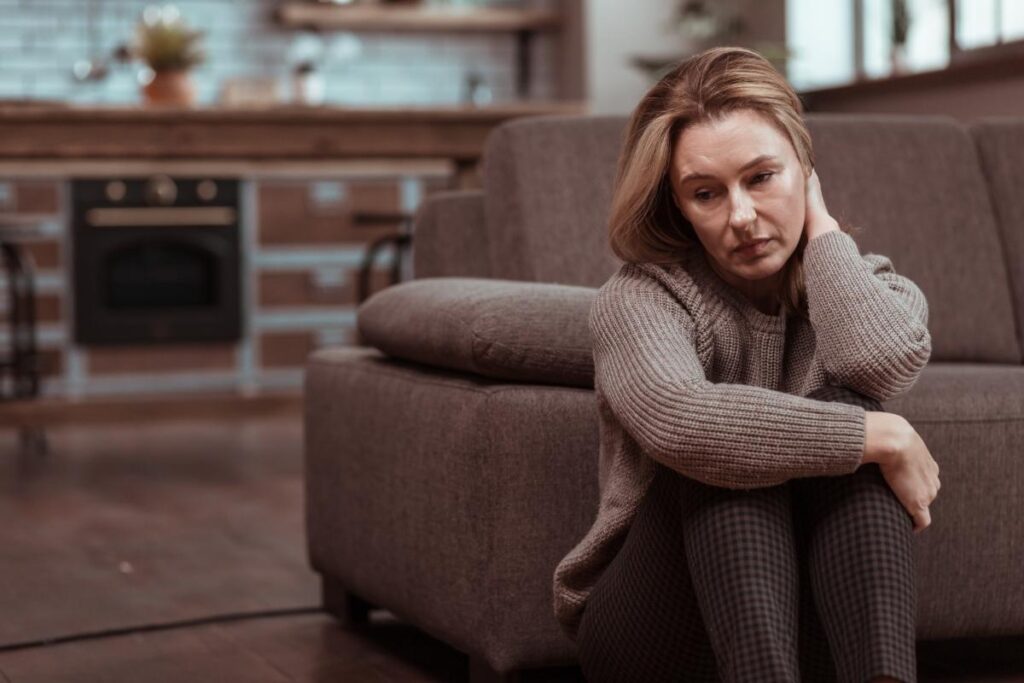Today, at least half of people with addiction and substance use disorders also live with mental health conditions like depression. Unfortunately, mental health and addiction are highly stigmatized across the United States. This prevents many people from accessing the treatment they need. A lack of mental healthcare and education can lead many people with depression to self-medicate with drugs and alcohol to reduce symptoms and cope with daily life.
Unfortunately, depression and other co-occurring disorders can intensify addiction symptoms and make it harder to stop substance use. Co-occurring disorders treatment is one of the best ways to address mental health and addiction together for long-term healing.
If you or someone you love is struggling with addiction and depression, co-occurring disorders treatment can help. At A Better State, we believe in holistic depression treatment that doesn’t compromise your schedule. Our trauma-informed outpatient clinic helps clients treat depression and addiction together for better results. Call us now at 781.412.1488 to learn more about treatment for addiction and depression today.
What Is Depression and Why Is It Hard to Treat?
Depression is a mood disorder. Characterized by a “depressed” mood, depression is more than sadness or feeling low. Many people describe their experience of depression as a “numbness” or an “inability to feel any feelings.” This makes many withdraw from daily life and the people and activities they love.
Studies show that brain chemistry is a leading factor in depression. Time of year, self-worth, unprocessed trauma, diet, exercise, co-occurring disorders, and relationships can also affect depression and increase symptoms. Common depression symptoms include:
- Lethargy
- Excessive sleep
- Trouble waking
- Trouble falling asleep
- Lack of interest in activities
- Changes in hygiene
- Changes in weight and eating habits
- Lack of motivation
- Disconnecting from loved ones
- Falling behind in work or school
- Unexplained sadness, hopelessness, and apathy
- Trouble asking for help
These are only a few signs of depression. For many, tiredness and lethargy can upset their natural sleep rhythm. Some may have trouble sleeping and night and sleep more during the day, while others sleep excessively. Some may also struggle to get out of bed and start the day. There are several clinical depressive disorders that a clinical psychologist should diagnose to determine the best treatment plan. Co-occurring disorder treatment can prevent worsening symptoms and stop someone from self-medicating with drugs or alcohol.
Understanding Co-Occurring Disorders Treatment
Depression is common across the country and here in New Hampshire. Unfortunately, many people don’t seek treatment or don’t have access to mental health care. This can lead to self-medicating with drugs and alcohol, creating a cyclical pattern that is hard to break without treatment.
For many, alcohol is a common, easy-to-get, self-soothing substance. When it enters the bloodstream, it may provide temporary relief from depression. Someone may feel more joy, fearlessness, or pleasure from the dopamine release of alcohol and other substances. Unfortunately, alcohol is a depressant. It works by slowing down every system in the body. This causes slurred speech, trouble walking, and increased tiredness. Over time, alcohol can make depression worse.
Other depressants like opiates can have a similar effect. Providing temporary relief from reality, over time, they make depression worse. This can cause many to use more drugs and rely on a short high to boost their mood. Even stimulant drugs like meth and cocaine will cause depression to worsen after they wear off. For many people living with depression, substance use is a way to escape their day-to-day experience of life.
Get Help with Addiction and Depression at A Better State
Mental health and addiction are deeply connected. Treatment for addiction and depression is a safe, effective, and individualized approach to addiction and mental health. Increasingly popular, co-occurring disorder treatment looks at the root cause of addiction and helps clients balance their mental health while detoxing and recovering from substance use. Most times, by treating the underlying mood disorder, a client experiences fewer drug or alcohol cravings.
If you or someone you love needs help for addiction and depression, A Better State is here. We provide holistic treatment for depression, post-traumatic stress disorder (PTSD), and anxiety alongside addiction recovery. With a range of accessible outpatient treatment programs, our clients benefit from treatment that fits their schedules.
Our trauma-informed clinic provides a range of evidence-based treatments and alternative therapies to uncover past trauma and treat addiction triggers without residential rehab. Let the team at A Better State help you and your loved ones recover. Contact us today at 781.412.1488 to learn more about treatment for addiction and depression and get the help you need today.


